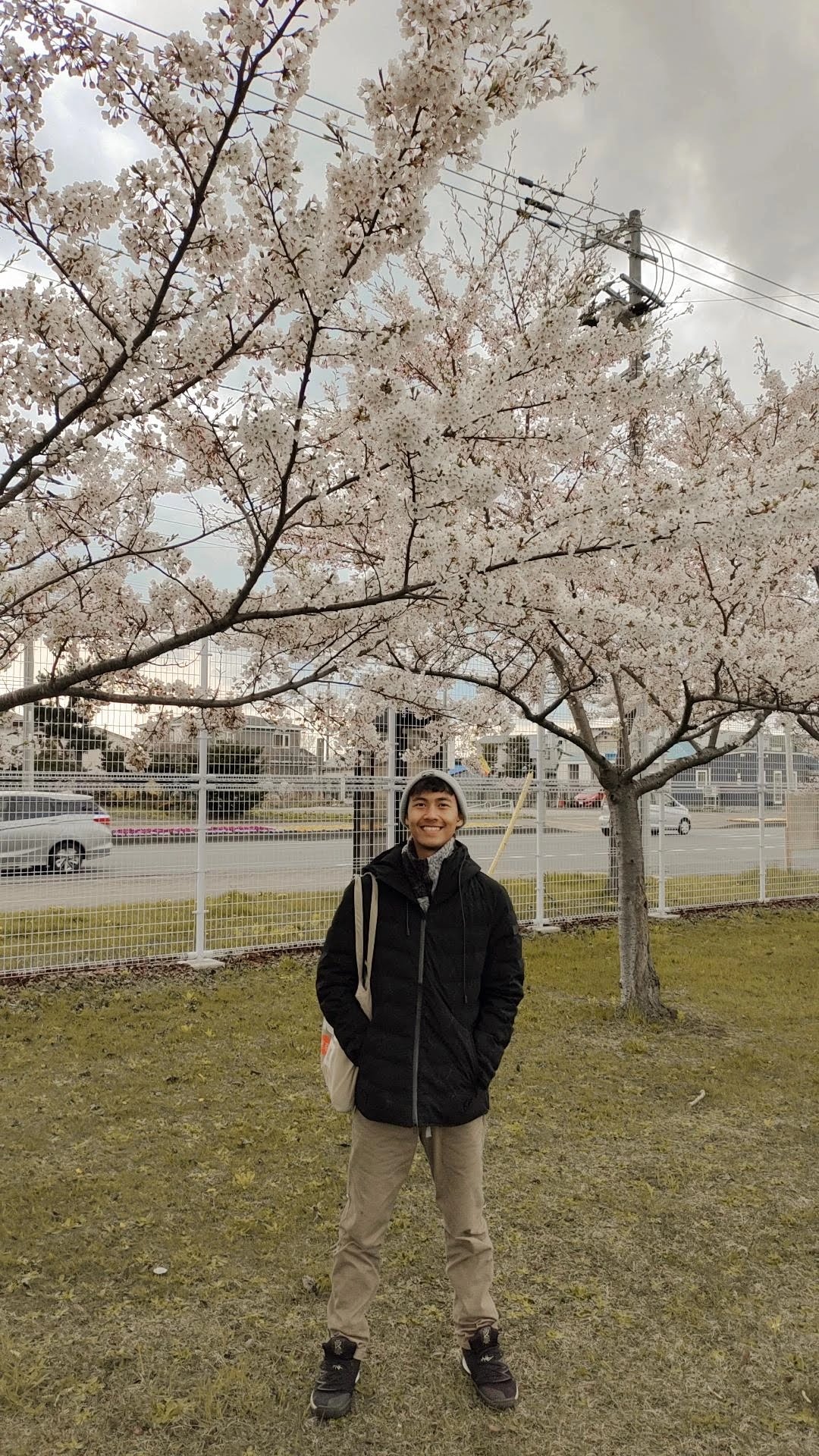
Elang Kurniawan, a student from the aquaculture study program of the Faculty of Fisheries and Marine Science batch of 2019, is one of the students selected as a participant in the internship in Hokkaido, Japan. This internship program lasts for eight months, from April to December 2022. Elang is assigned in Abuta City, Hokkaido Island at Abesigo Nori company which is engaged in hotate scallop cultivation. Along with Elang, there are 22 students from other faculties who have also departed to Japan.
According to Elang, the first step to join this internship program was reading the announcement pamphlet about the internship activities posted in the department. After that, he attended an interview with the institution that teaches the language and the company where the internship will be. After passing the selection, he had to take part in a language learning program for three months which was divided into several stages, such as one month for online learning and two months for offline learning in Tangerang. After the visa and other processes were completed, Elang and other participants departed in April. Upon arrival at their destination, they had to learn about all the industries there.
Elang explained that every student who departs to Japan is only responsible for visa fees and language training. For this reason, participants are given the convenience of being able to repay these costs after they get a salary from there. Meanwhile, the cost of round-trip airplane tickets is covered by the companies. The total cost spent by Elang was in the range of IDR 10 million to IDR 15 million.
The additional benefits that Elang got from participating in this internship program were the opportunity to practice a disciplined lifestyle and the opportunity to directly learn about hotate scallop from cultivation to harvesting. Meanwhile, the benefits he received were the pocket money he received, which was in the range of IDR 9 million to IDR 18 million for a work time of six to eight hours per day.
The obstacles that Elang has experienced during this internship program were adaptations around language and work. In addition, the cultural aspects of the community, which according to him, cannot be as free as in Indonesia. However, he admits that the people there tend to be kind and friendly. In terms of facilities or freedom of worship, there are some companies that have accommodated their employees’ prayer time and some have not. He found that there are no special facilities in the form of places of worship, while the existing mosques are located quite far from where she works. On Eid al-Fitr, Elang and his friends had to use the train to get to the location where prayers were held.
Elang advised those who would be going to the internship there like him to not bring any troublesome items because there were already provided dormitories and vehicles with public transportation, so just bring your own self and the necessary supplies. Because the company where he carries out internship does not have work or activities every day, with the permission from the company, Elang and his friends use their available times to just shop or take a walk while learning the culture there. After seeing and learning about various useful technologies, Elang is determined to return to Japan to continue his studies there.
